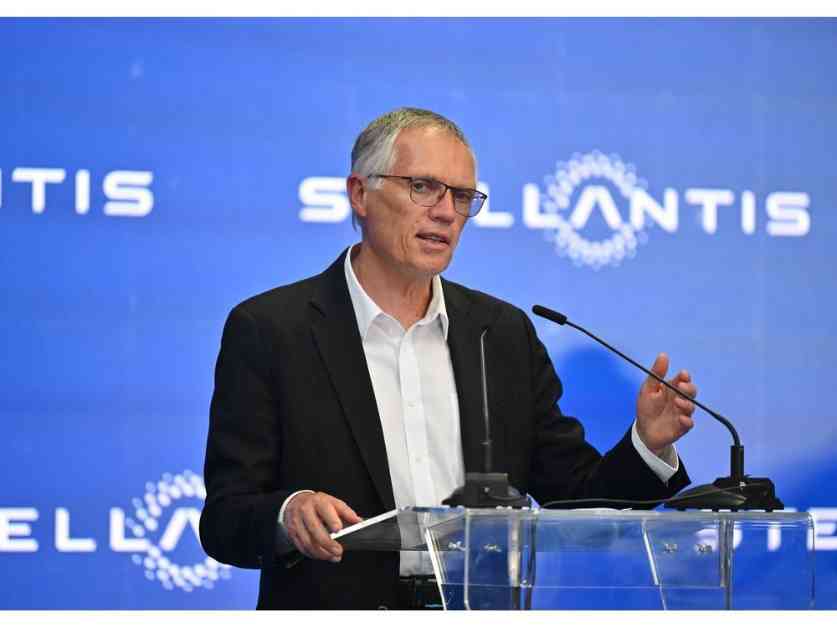Stellantis, one of Europe’s leading car manufacturers, is standing firm in its stance on upholding vehicle emissions rules set by the European Union. The company’s CEO, Carlos Tavares, has made it clear that they oppose any delay in the implementation of these rules, which are scheduled to take effect next year. This position has the potential to create a conflict with other manufacturers in the region who may be seeking a postponement.
In a recent statement to Agence-France Presse, Tavares emphasized the importance of maintaining the current regulations, stating, “It would be surreal to change the rules now.” Stellantis has also expressed support for government subsidies that incentivize consumers to purchase electric vehicles, highlighting their commitment to sustainability and environmental responsibility.
The European Automobile Manufacturers’ Association (ACEA) has put forward a proposal to the EU requesting a two-year delay in the emission targets set for 2025. However, Tavares has made it clear that Stellantis is prepared to meet these targets, having already developed electric vehicle models and established mechanisms for their sale.
Stellantis’ decision to withdraw from ACEA in 2022 underscores their dedication to compliance with emission regulations. The company has taken steps to reduce costs, introduce new models, and compete with emerging players in the market, such as Chinese manufacturers and Tesla. This proactive approach positions Stellantis as a leader in the transition towards sustainable mobility.
Despite the challenges faced by the European auto industry, including competition from China, rising energy costs, and subdued consumer demand, Stellantis remains committed to meeting emission targets and contributing to a greener future. By investing in electrification and innovation, the company is paving the way for a more sustainable automotive sector.
In conclusion, Stellantis’ unwavering support for EU vehicle emissions rules sends a strong message to the industry about the importance of environmental sustainability. By prioritizing compliance and innovation, the company is setting a precedent for responsible corporate citizenship in the automotive sector.
Implications for the Industry
Stellantis’ stance on upholding vehicle emissions rules has broader implications for the automotive industry. By advocating for the timely implementation of regulations, the company is pushing for greater accountability and environmental stewardship across the sector. This commitment to sustainability could set a new standard for other manufacturers to follow, encouraging more investment in electric vehicles and renewable technologies.
Challenges and Opportunities
While meeting emission targets presents challenges for the industry, it also opens up opportunities for innovation and growth. By investing in electric vehicle technology and sustainable practices, companies like Stellantis can position themselves as leaders in the transition to a low-carbon economy. This shift towards cleaner energy sources and reduced emissions has the potential to drive economic development and create new job opportunities in the green energy sector.
Future Outlook
As the automotive industry continues to evolve, companies will need to adapt to changing regulations and consumer preferences. Stellantis’ proactive approach to emissions compliance and sustainability sets a positive example for the industry, demonstrating the benefits of investing in clean energy solutions. By embracing innovation and environmental responsibility, companies can not only meet regulatory requirements but also contribute to a more sustainable future for the planet.






















